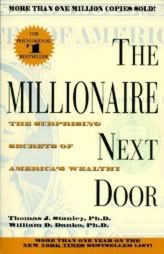Rebalancing Your Investment Portfolio
How would you like $4,290,387? It's easy! Just go back to 1972 and invest $100,000 into a well-diversified portfolio. Not enough money for you? Well, then, here's how you can add $334,124 to that tidy sum: Simply rebalance this well-diversified portfolio annually.
Okay, despite my fondness for Marty McFly, there's no way to travel back 38 years and open a brokerage account. But the past few decades may provide clues about the next few, especially regarding portfolio behavior and the value of rebalancing. Below, we'll look at three common beliefs about rebalancing and explain whether they're true or false — and why.
Reduce, Reuse ... Rebalance?
In case you're new to the concept, rebalancing is the process of returning a portfolio to an investor's predetermined appropriate allocation (for example, 65% stocks and 35% bonds). A balanced portfolio is key to ensuring steady, growing returns, but the movement of various investments over time can cause that initial, balanced allocation to change; assets that have done well become a bigger piece of the pie, while the laggards shrink to a smaller portion.
Continue reading...
All about asset location: How to make the most of your accounts
When Robert submitted this, he advised, "File this under the 'long and tedious but important' category. It might need pictures of cats." So, once again, J.D. has obliged with photos of one of his cats.
Want to have more money and pay less in taxes? It's easy! Just call this number and send in your three easy payments of — no, wait. Actually, all you have to do is learn a little about asset location. No, not asset allocation — asset location: deciding which assets should go in which accounts. A recent surge of Roth assets, thanks to the increasing availability of the Roth 401(k) and the wave of conversions that occurred last year, makes this a particularly timely topic.

Wait! Don't leave! Though a little tedious, this is an important subject.
To understand asset location, you need to remember that most investors have accounts that receive different tax treatment, such as the following:
Living below your means is like saving for retirement twice
Hello, GRSers. Today, let's revisit something I tacked on to the end of my nine lessons from The Millionaire Next Door:
[T]here are actually two benefits of learning to live on much less than your paycheck.
- The first, of course, is that you can save more.
- But secondly, it also means that you ultimately need to save less.
Permit me to demonstrate.
College Is a Big, Fat, Hairy Rip-Off! (But Save for It Anyway)
A few weeks ago, the proprietor of this establishment (J.D. “The letters in ‘Get Rich Slowly' can be rearranged to spell ‘The Sly Cowgirl'” Roth) asked me to address a reader's question — specifically, how should a parent save for college (perhaps because I once wrote a book on the topic, though it's now outdated). But first, let me say this:
College costs too much, it saddles young people with too much debt, and it forces students to “learn” things they'll soon forget — and it won't matter because it wouldn't help them further their careers anyhow.
An interview with Thomas Stanley, co-author of “The Millionaire Next Door”
 A while back, I mentioned the book The Millionaire Next Door to one of my colleagues at The Motley Fool. "That book changed my life,” she gushed. For some people, it really can be that powerful — even fifteen years after it was first published.
A while back, I mentioned the book The Millionaire Next Door to one of my colleagues at The Motley Fool. "That book changed my life,” she gushed. For some people, it really can be that powerful — even fifteen years after it was first published.
In this post, I present an edited transcript of a conversation I had with Dr. Thomas Stanley, co-author of The Millionaire Next Door and author of several other books, including Stop Acting Rich, published in 2009.
Robert Brokamp: In a few sentences, who is the “millionaire next door”?
<
Nine lessons in wealth-building from The Millionaire Next Door

Want to become a millionaire? Then perhaps you should start by studying the behaviors of people who have done it. Check out the lists of the best financial books of all time, and you're bound to find several that include The Millionaire Next Door: Surprising Secrets of America's Wealthy.
 Written in 1996 by marketing professors William Danko and Thomas Stanley, its main premise is that people who look rich may not actually be rich; they overspend — often on symbols of wealth — but actually have modest portfolios and, sometimes, big debts. On the other hand, actual millionaires tend to live in middle-income neighborhoods, drive economical cars, wear simple watches, and buy suits off the rack.
Written in 1996 by marketing professors William Danko and Thomas Stanley, its main premise is that people who look rich may not actually be rich; they overspend — often on symbols of wealth — but actually have modest portfolios and, sometimes, big debts. On the other hand, actual millionaires tend to live in middle-income neighborhoods, drive economical cars, wear simple watches, and buy suits off the rack.
You've likely heard of the book. You may be familiar with the premise. Perhaps you even read it way back when. But if you read it again — as I recently have — you'll be reminded of some of true gems of wisdom Danko and Stanley gleaned from their thousands of surveys of millionaires.
The tiger mother and you: Are we preparing our kids for a better financial future?

A lot of people wonder how Chinese parents raise such stereotypically successful kids. They wonder what these parents do to produce so many math whizzes and music prodigies, what it's like inside the family, and whether they could do it too. Well, I can tell them, because I've done it. Here are some things my daughters, Sophia and Louisa, were never allowed to do:
- attend a sleepover
- have a playdate
- be in a school play
- complain about not being in a school play
- watch TV or play computer games
- choose their own extracurricular activities
- get any grade less than an A
- not be the No. 1 student in every subject except gym and drama
- play any instrument other than the piano or violin
- not play the piano or violin.
As shown in this Today Show interview with Chua — a Yale law professors and the daughter of Chinese immigrants — when her daughter gave her a plain handmade birthday card, Chua handed it back and said, "I reject this."
Don’t Get Rich Any Slower Than You Have To
This is one of those boring articles about investing that is actually very important. To liven things up, J.D. has illustrated this article with photos of one of his cats.
It's quiz time, folks. See if you can answer any or all of the following questions:
- Do you know what your entire portfolio earned over the past year?
- What's your best-performing investment? Your worst?
- If you invest in mutual funds, do you know how many of your funds are beating their benchmarks?
- Would you have been better off investing in a collection of index funds?
Did you have answers to all those questions? If you did, how confident are you that your responses are accurate?
The Cost of Being a Better Parent
Remember the good old days? Of course not, because they never really existed — at least not the way they're recalled in old TV shows and movies. But you can still get a flavor for how things have changed by watching old episodes of black-and-white classics like Leave It to Beaver. Speaking of which, here's an old public-service clip featuring Hugh Beaumont before he became famous as Ward Cleaver. (The satirical comments are provided by the silhouetted robots and human of Mystery Science Theater 3000.)
https://www.youtube.com/watch?v=THYVh9AhtLk
If you don't want to watch the whole thing, here's a line that will give you a taste: “The women of this family seem to feel that they owe it to the men of the family to look relaxed, rested, and attractive at dinnertime.”
<The Quest for the Best Budget
We can do two things with our money: spend it or save it. (Actually, there are other possibilities — eating it! smoking it! — but we'll limit our discussion to what sane people do.) For most people, spending is in the driver's seat, getting the largest chunk of monthly cash flow and — let's be honest — a lot more fun. Yet we all know that we should be saving money, and that a good deal of our spending is the financial equivalent of eating a Twinkie: It provides a short burst of pleasure, but no lasting value. In fact, it can undermine future well-being (and possibly make us fat).
Many financial planners suggest that the first step toward reaching a spending-saving détente is analyzing your spending and creating a budget. But there are few problems with traditional budgeting:
- It's difficult to monitor every specific category — e.g., utilities, food, clothing, entertainment — and make sure you're spending just so much and no more.
- It can be time-consuming and tiresome.
- It focuses more on spending — and often the restraint of spending, which can feel like a straitjacket — while saving can seem like an afterthought.
I myself have found budgeting more difficult as my family has grown and my life and finances have become more complicated. So after a good deal of thought and research, the Brokamp family is flipping the process around. Rather than seeing how much we spend and then saving the rest, we're determining how much we need to save, and then spending the rest — what I'm calling "goals-based budgeting."
The benefit

